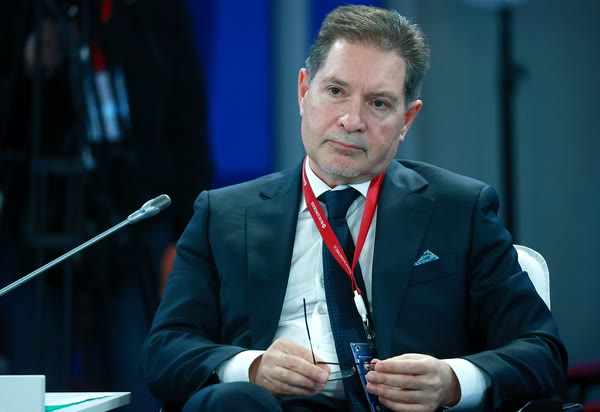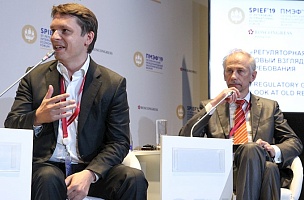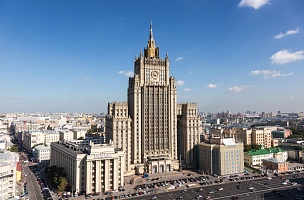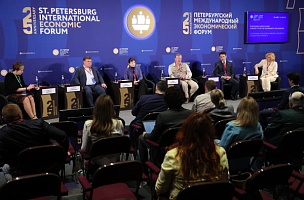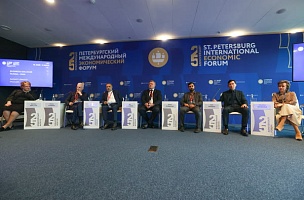Key conclusions
To develop technologically, we must work with other countries to improve our skills among other things
“Partnership is part of sovereignty because no project of this kind (a nuclear facility) can be implemented alone. It is a huge order for the local industry and a huge opportunity for them to learn how to make something high-class, high-tech, and then supply it not only for the needs of the nuclear power industry, but for any high-tech sector. It is my firm belief that any country that is thinking today about the future of its energy as well as its technological future and independence and sovereignty, simply has to have some kind of nuclear facility on its territory, at least as a base around which to then build many other things,” Kirill Komarov, First Deputy General Director, Director of the Development and International Business Unit, ROSATOM State Atomic Energy Corporation.
“Of course, there are weaknesses in the system, deficiencies in education and knowledge to build the kind of production associations that Western countries have, but we are trying to speed up the process. We need a very large coalition with countries that have already gone down this path and can help us, not only to make our country stronger, but in order to shore up our technological sovereignty. We believe in cooperation, but everything has to be done in India. Western countries can provide their experience, expertise, knowledge, and we can provide our human resources and human capital,” Skannd Tyagi, Founder, Chief Executive Officer, Starshot Ventures.
“In the United Arab Emirates, large funds are being created to develop local talent, important infrastructure is being created to develop start-ups, funding is certainly also actively developing, and the government, particularly in Dubai, sees a need to improve the skills of specialists. Collaboration is now underway with leading players in the industry such as Google, Amazon, and Facebook. It’s cooperation because these giants are helping to develop skills,” Kamran Mehdiyev, Managing Director, Profex Group.
An important part of technological sovereignty is people’s ability to access technology
“We don’t look at how good the technology is, we look at how accessible it is so that it can reach the entire population. If you have a population of 900 million who can master these technologies, then things will change not only for India but also for Western countries, if we are talking about technological sovereignty,” Skannd Tyagi, Founder, Chief Executive Officer, Starshot Ventures.
Cybersecurity is a priority area for technological development
“In the United Arab Emirates, amid all this technological development, cyber security has become a major focus. It is now a fundamental area of development,” Kamran Mehdiyev, Managing Director, Profex Group.
“The interesting thing is that most of today’s existing technological solutions in all sectors of the economy fail to meet this information cybersecurity requirement. So it’s clear that all countries that want to move to the next level of Industry 4.0 industrial relations will have to create all these solutions anew, based on new principles,” Vasiliy Shpak, Deputy Minister of Industry and Trade of the Russian Federation.
PROBLEMS
A geopolitical open-source rift could adversely affect community development
“What we see now, and what worries us, is open source and a potential geopolitical rift across the open-source community. Western vendors have left us, and it is clear that we are now replacing imports with solutions from Russia, but unfortunately, many are based on open source. Many in the community, and the foundations, have taken an unfriendly stance towards us as well,” Kirill Menshov, Senior Vice President for Information Technology, Rostelekom.
Cybersecurity issues gain in importance as technology advances
“Because of the development of digital technology in a world where unmanned technologies, unmanned factories, and production facilities are developing, the issue of cyber security, information security is becoming prevalent. Information cybersecurity will set the trend in general across the entire spectrum of technology solutions,” Vasiliy Shpak, Deputy Minister of Industry and Trade of the Russian Federation.
SOLUTIONS
Developing in-house open-source software together with friendly countries
“What worries us now is that if a geopolitical rift takes place in the open-source community in the same way that it did in the business community, we will have to make a choice: either our technological sovereignty will turn into technological isolation, or we will be able to create an alternative open-source community at the level of BRICS or through a wider base of countries, where we could develop within Russia and more broadly the IT technology base upon which most Russian solutions are built,” Kirill Menshov, Senior Vice President for Information Technology, Rostelekom.
“I agree that the idea of our ‘own zone’ implies new models of research, development, and production. In this sense, in fact, open-sourcing will be mandatory because no one is interested in buying box solutions and becoming fully dependent on others. Therefore, those who are ready to enter the zone with us and move and develop together and build their economy in a shared space with us will be interested in joint development of these solutions and not just in development, but in the implementation of these developments,” Vasiliy Shpak, Deputy Minister of Industry and Trade of the Russian Federation.
Technological solutions must include security solutions
“The safety of any slightly complicated device should not be ensured by some superimposed solutions, it should be ensured from the start at the stage of design, production, the whole life cycle of the creation and existence of the technological system,” Vasiliy Shpak, Deputy Minister of Industry and Trade of the Russian Federation.


